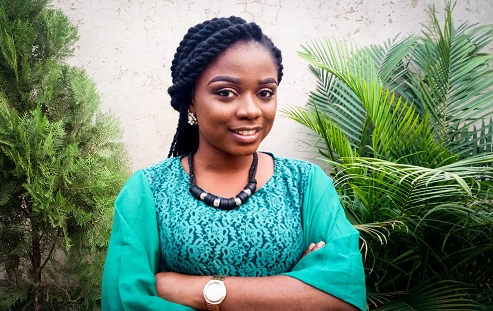 Sophie Abache {Co-Founder, SHE ICT}
Sophie Abache {Co-Founder, SHE ICT}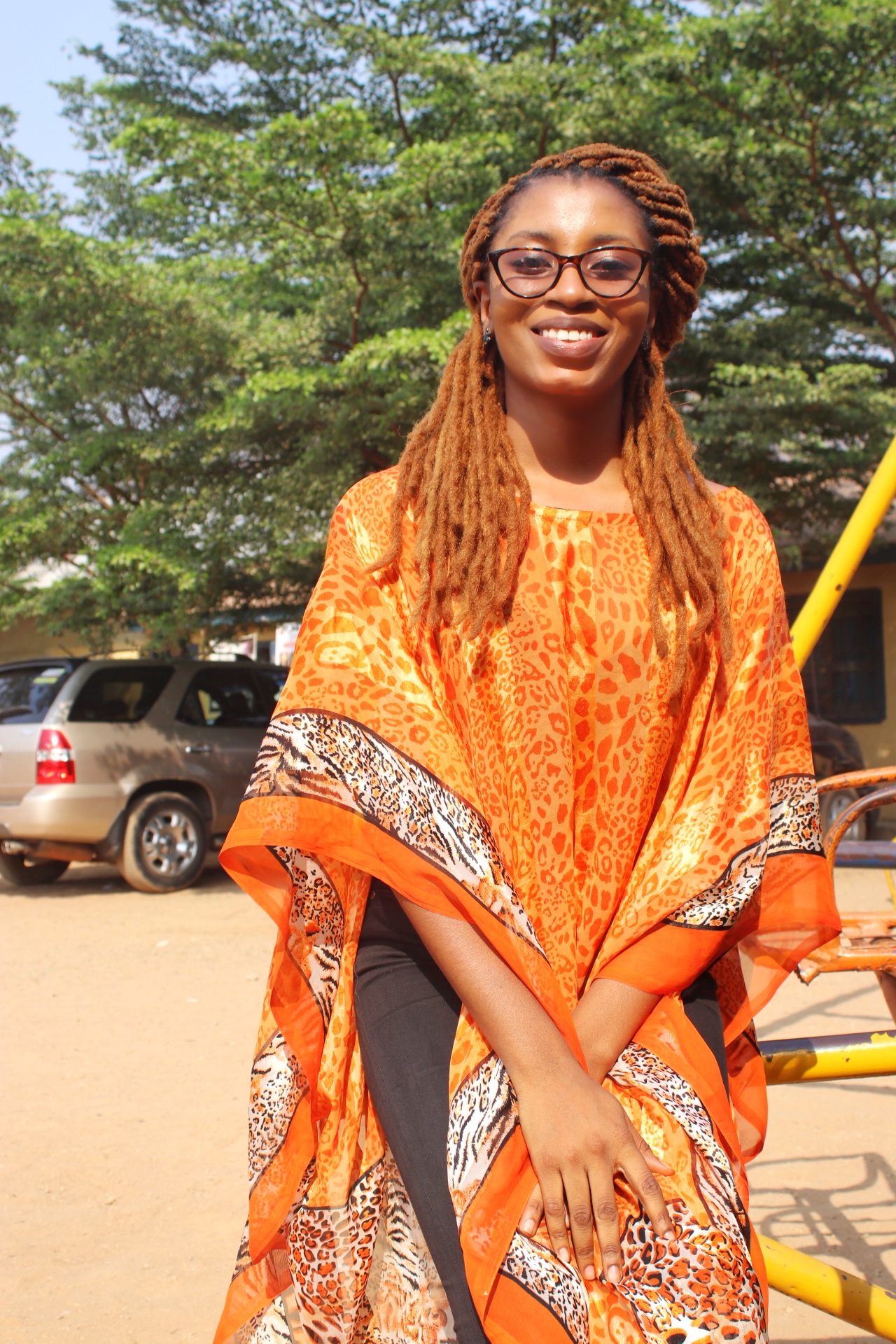
We live close to rural settlements in FCT Abuja and witness firsthand the effects of poverty on women and how this vicious circle continues with the next generation. For instance, a woman that didn’t have the opportunity to a formal education and now probably does petty trading and is married to a local artisan, births children and basically lives from hand to mouth, joggling the numerous impacts of poverty daily. She then sets her daughter on the same path of poverty by being oblivious to the changing world; not letting her develop skills that will help her compete for jobs and other opportunities in the future. Instead, she focuses on making the girl spend all her time before and after school on being a contributor to their daily survival as a family by making her hawk, sell in the family shop, etc. A lot of the time, without proper guidance, these girls end up getting impregnated and repeating the same circle of poverty.
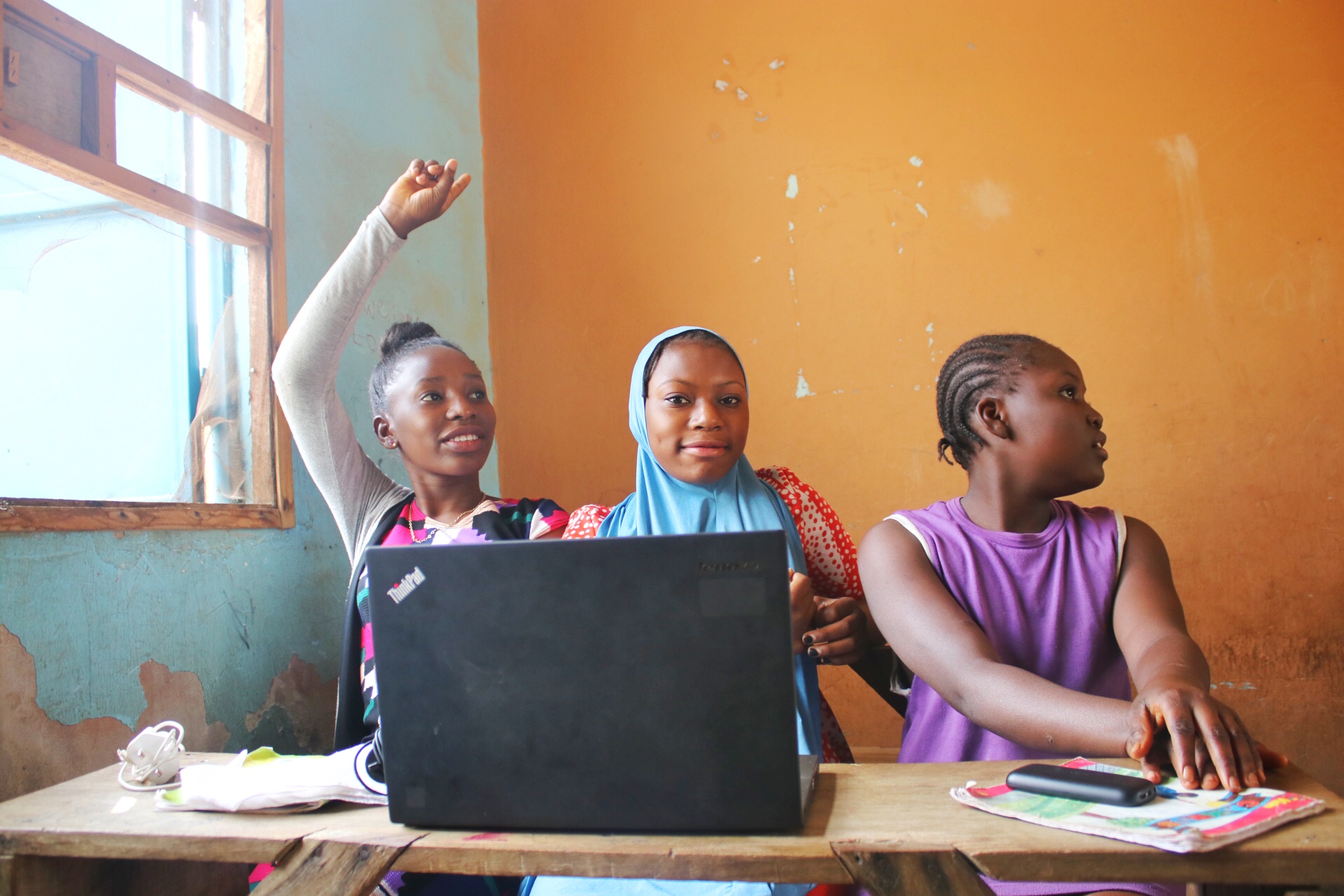
Seeing and dealing with the effects of this pattern in our society, we decided to mitigate it in our own little way. We combined our strengths in Information Communication Technology (ICT), Public Health and humanitarian services to come up with the initiative, She ICT Society (SIS). We believe SIS is an effective solution to the problem because the programme equips the girls (SIStars) with ICT skills that are necessary to compete in today’s workforce, exposes the girls to what is possible/achievable outside their locality, and provides mentorship beyond what they’re taught in school and what they can’t discuss at home. It is designed to be both a launch pad and a safe haven for young girls.
Would you say the Nigerian society is adequately prepared for girls in tech.?
For the most part, Nigeria is ready for girls in tech. Most people now know that it is not a masculine thing, especially with the emergence of companies like Andela and what women like Abisoye of Girls Coding are doing. Girls have equal chances to excel, provided they’re interested, hardworking and given the enabling environment. One of the major factors still holding us back with regards to tech in Nigeria is the influence from home. Growing up, most girls are not involved in anything associated with tech. A female child is hardly the one that helps their parents fix their phones or the TV or anything “non-domestic.”It is made to look mysterious, difficult and masculine. Even for girls that eventually take it up, a lot of the times they have to battle “home forces.” While their male counterparts can freely go to tech hubs, attend conferences/events and physically network, these girls are limited to where they can go and what they can do just because they are girls. However, the Nigerian society is evolving and we will have all hands on deck in the near future.
What have been the challenges so far?
One of the challenges that we face is that parents engage some of the girls during classes either to hawk, follow their mothers to the market, stay in the shop, and so on. This inconsistency slows down and affects the learning process. Also, because of their financial realities, the girls do not have access to computers to practice what they have been taught so missing one class creates a huge gap in the learning process.
Another key issue we face is power. Due to the epileptic nature of power supply in Nigeria, we always have to rely on generators to power the laptops and the projector for effective learning during sessions. Considering our limited resources, this is sometimes challenging. We also are constrained with resources such as volunteers, laptops, generator, projector, stationery, and a well fitted facility/location.
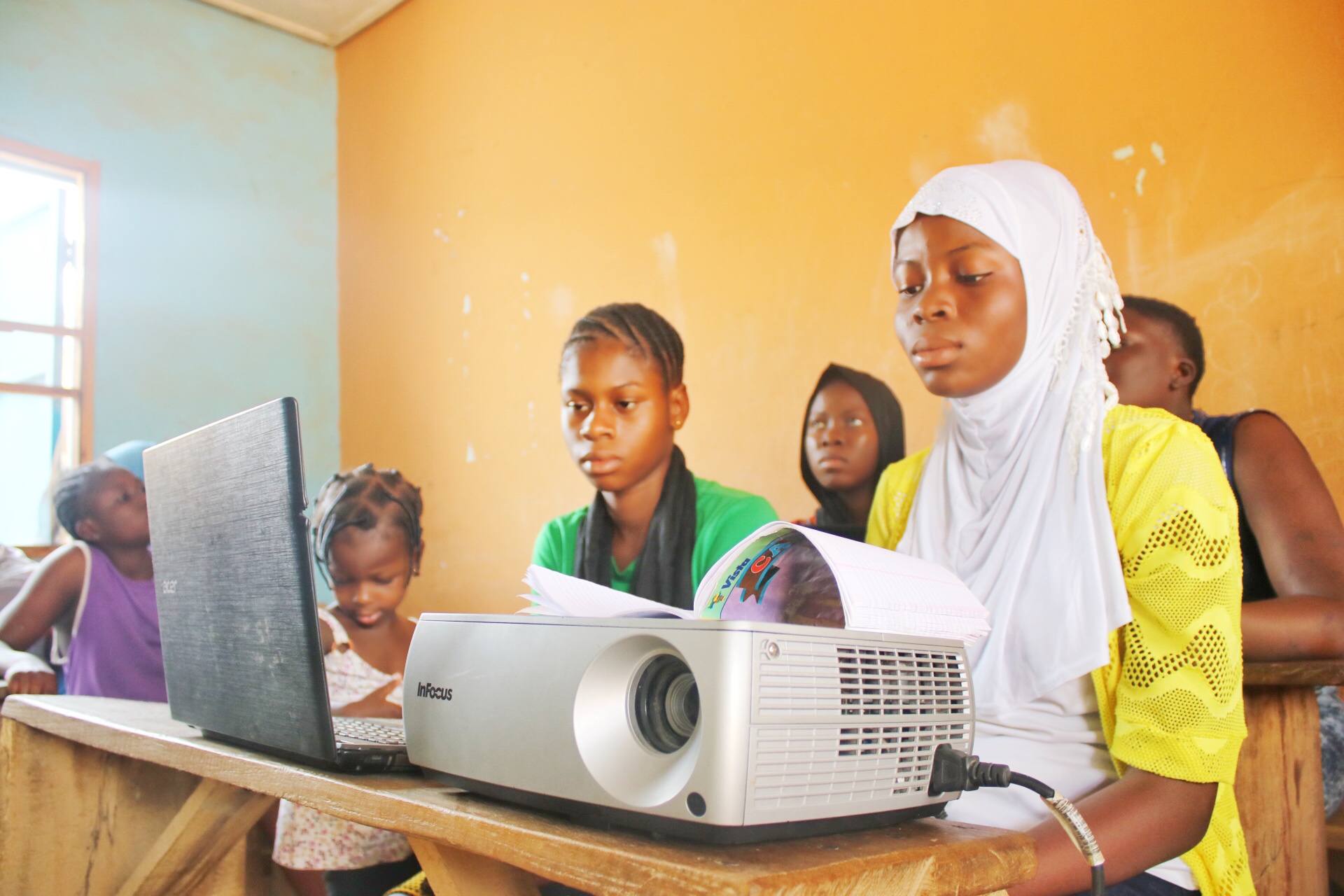
Continuity is also one of our key challenges at SIS. After we complete the modules for each set of girls, they graduate and still go back to not being able to actively practise what they have learned. The vision is to have a hub where these girls can come and practise their computer skills whenever is convenient for them and their parents. Also, we hope to collaborate with other organisations and schools for incubation such as Nigerian Women Trust Fund (Taiwo partook in their mentorship programme), Andela, Teety Tech, Girls Coding, TechHer, Microsoft and more.
How do you get girls to join this society?
For the first batch of SIStars, we went door-to-door in Dutse Alhaji, a satellite town in Abuja, handing out questionnaires to parents and their daughters to know their level of ICT competence, their interest in ICT and how willing they are to benefit from such a programme. After analysing the data collected, we decided on the level of expertise to start the lessons from, the time that works for most people, etc. 80% of the people we approached joined the classes. However, going forward, institutions such as schools, mosques, churches and traditional rulers in the community will be approached to nominate a specific number of girls for the programme. The reason we are taking this approach is that these are stakeholders in the community and will thus, ensure commitment from the parents and the students, thereby making the programme more effective and sustainable.
Share some of your success stories with us?
At the end of the programme, most of the girls remarked that being part of SIS has helped them become more confident because they now have computer skills, they have taught their siblings and other people around them how to use a computer, their school work has improved and they have now been inspired to positively impact their community. Here are some of their comments:
Victoria Gabriel (16 years old): “Being a part of SIS has helped nurture my communication skills and boost my confidence for my future career as a Lawyer. It has also inspired me to help people in my area the same way our big SIStars have helped us.”
Boluwatife Samuel (12 years old): “During my computer class in school, my teacher asked us the meaning of Save As and I was the only one that was able to answer it. Since then, everyone has been asking me to teach them computer.”
Is the society open to volunteers?
Yes please. Volunteers are very welcome. Even if you cannot volunteer yourself physically, you can volunteer your laptop. Due to limited resources, SIS does not have enough computers for the girls to use so people that support our programme volunteer their laptops for the classes. We ensure the safety of their computers and the files in it. We let the girls know that the computers are made available based on the goodwill of people and we sensitise them on good use of computers. Also, every SIS class comprises of two sessions; the technical session where we teach SIStars computer skills and the becoming session where we mentor them. A volunteer can contribute to either of the sessions, depending on their strengths and experience.
How do you think young girls can be groomed to achieving more feats in the science industry?
We believe that the process begins at home. Parents should bring up daughters without limits to thought and ambition. They should encourage girls to have personal drive and aspire to be excellent. In our becoming session, we tell the girls about women around the world that have achieved and are achieving great feats in STEM. This exposes them to what is possible when you work hard and do not limit yourself based on your gender. Also, more programmes like SIS could help demystify tech for girls and get them to be more interested.
Why the age bracket of (8-16)?
We chose this age range because 8 years is the average age in Nigeria when children are transitioning from Primary to Secondary school. At this age they are not too young to grasp the lessons and even understand the goal of the programme. Then at 16years old, most of them are transitioning from Secondary school to the University where major decisions regarding their career paths will be made. So this age range is a good time to mentor them and nurture their passion for ICT.
What do you think is the greatest challenge of young girls in Africa?
CULTURAL BARRIERS. This manifests in different forms; from the number of out of school girls, to lack of ambition due to over-domestication and career limitations, the African woman is constantly in a battle with society to “be” and reach her full potential.
Apart from getting the girls trained in tech, what else does SheICT provide for the girls
We have a mentorship part of the programme called Becoming Session that we run simultaneously with the technical session. Here, the girls watch relevant Tedx talks, learn about reproductive health, do presentations to improve their communication skills, engage in debates, listen to talks from professionals in different fields, play games and have fun!
What would you advice people who want to create an organization like this for young girls?
The first and most important thing is to be sure you have a passion for improving the lives of girls. This is the fuel that will keep you going regardless of the challenges you face. Secondly, define your scope, have a plan and try to stick to the ultimate goals. Lastly, get the consent of parents or guardians before you start your intervention.
Tell us the five mistakes you made when you started.
- Time management as a result of late coming and trying to carry every single student along.
- Not setting class rules from the beginning.
- This led to bad behaviour by some students.
- Not engaging stakeholders from the beginning.
- This is why many parents were not fully committed to the programme.
Tell us about your long term goals for SheICT.
Some of our plans for the future include setting up satellite hubs around the country, organising ICT trainings for interested rural women, partnering with public schools on ICT programmes and organising holiday bootcamps for students.
You can follow SHE ICT on Facebook: https://www.facebook.com/sheictsocietysis, Twitter: @sheictsociety and Instagram: @sheictsocietysis

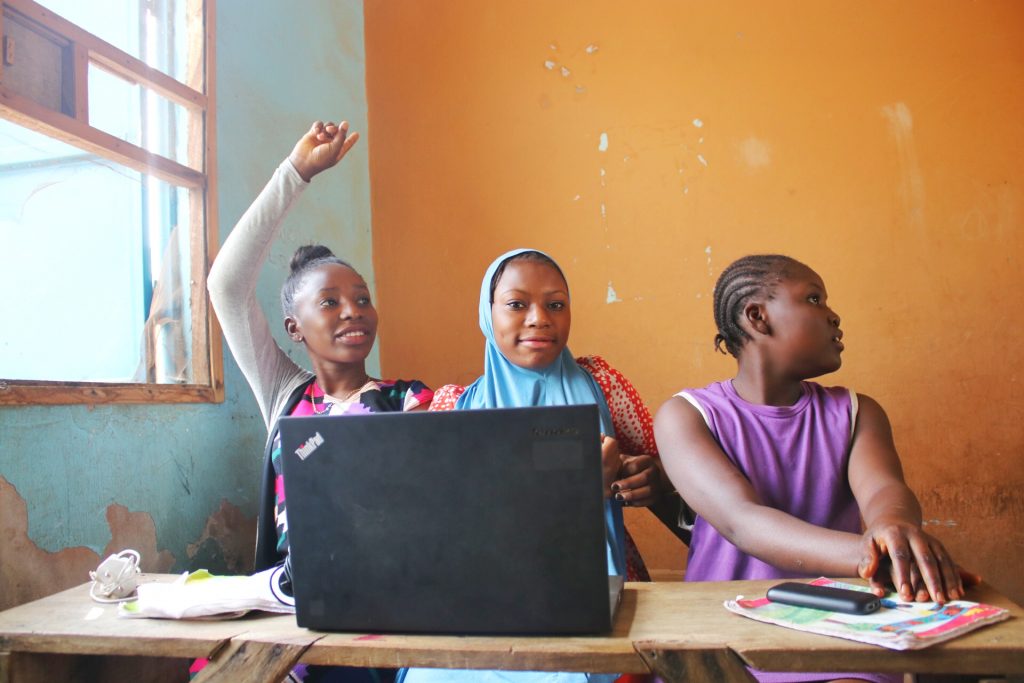
3 Responses
This is amazing. Well done to these super women.
Well done She ICT. When next I’m in Abuja, I will stop by. This is nice. Very nice.
This is amazing. God bless you ladies. You are indeed an inspiration.